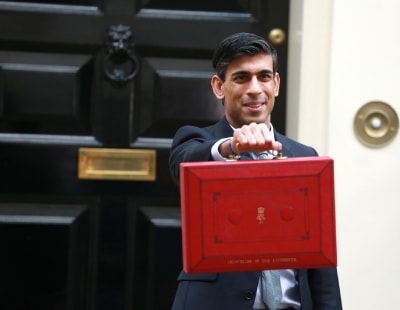
A prominent industry figure says the current stamp duty holiday could effectively be a trap to lure in buyers who will later be expected to pay much harsher new property taxes.
David Alexander, joint managing director of PropTech platform apropos, says he fears the Chancellor’s review of Capital Gains Tax could mean that buyers tempted into purchasing during the SDLT holiday may be clobbered by the Treasury later.
“The Chancellor should be credited with ensuring that the property sector has come out of lockdown fully functioning and, dare I say it, almost thriving. This is terrific news, but the concern is if the current CGT review is being used as a means of recovering many of the gains made in these present purchases through a greater CGT take in the future” warns Alexander.
“With an enormous deficit to cover the Chancellor may be giving SDLT savings with one hand only to take these gains away through increased CGT later. The temptation is to see the SDLT giveaway as a means of drawing more people into the market and then taking more back through CGT when the property is sold. This could be an extremely clever means of increasing the tax take for the Treasury for decades to come” he adds.
Alexander admits that the stamp duty change - and similar measures applying to the Land and Buildings Transaction Tax in Scotland - has had the desired effect of accelerating the volume of deals in the post-lockdown period.
But he adds: “The CGT review is broad based and is examining everything from main residence homes to landlords and property investors. Targeting homeowners would be politically difficult and controversial so may not occur but there is every chance that the real long-term target are landlords, investors and second homeowners.”
He says that what the market needs most of all now is stability and that it would cause “serious problems” if the government’s tax regime led to a property downturn.






/Parliament-Summer-400x310.jpg)










%20-%20IMAGE%20Client%20Accounting%20%E2%80%93%20what%20are%20your%20options.jpg)


.png)
.png)
.png)
%20(002).png)






%20(002).jpg)





%20A%20property%20tale%20for%20our%20times.png)








Join the conversation
Jump to latest comment and add your reply
Not necessarily. The thriving property market is bringing in masses of extra revenue collected from 20% VAT on estate agents services, solicitors services, removal firms bills, new fridges, carpets, curtains, paint, wallpaper, £15,000 + VAT on a new kitchen £5,000 + VAT on a new bathroom, you name it when you move. Introducing CGT on primary residences would lose Boris half his voters overnight (maybe a good reason for introducing it!).
Such spending is discretionary.
Homebuyers will just about afford the property such that they won't be splashing out.
The Treasury is not going to wait years for that spending to possibly occur
It wants the money now.
It is obvious Govt will hit 2nd homeowners particularly for the obvious reason that is where the money is.
Much like when Dillinger was asked why he robbed banks...........his response was that was where the money was.
2nd homeowners will especially be hit.
Therefore choose to buy properties you intend to keep long term to avoid CGT
Such a policy will cause many to reduce their property movements.
Many will put off buying until they can afford their forever properties.
A less vibrant property market is not beneficial to the economy.
But Govt is looking for as much money as it can find as quickly as it can.
That means property owners of all types.
You can't blame Govt for this.
They have little alternative unless they borrow even more.
So LL etc watch out.
Could, could, could, could, could. Pure speculation. On the other hand, he might abolish it altogether (more speculation).
Never sell. Just keep refinancing and adding to your portfolio.
Discretionary in theory and only in part. Conveyancers bills have to be paid and, for the most part, so do estate agents' and removal companies' bills. The vast majority of people want to make alterations immediately to the house they are buying (they have taken this into account in the price they are paying) so, although discretionary in theory, in practice new VATable work is nearly always carried out to some extent.
Hi richard, i agreed to purchase a property with iamsold the caviet in place was: Where the purchaser's mortgagee values the property at less than the purchase price, or requires a retention from the mortgage advance and where attempts to renegotiate the purchase price are unsuccessful, the reservation fee/deposit will be refunded subject to evidence being provided in the form of the Mortgage valuation or survey.
The lender is asking for a structural report, i have doubts about the lender releasing funds iamsold have been useless. Should i get the report done asap and take it to iamsold and request my money back.
Please login to comment